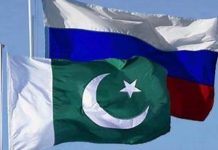After months of devastating violence, Gaza is finally experiencing peace. The shelling has stopped, and for the first time in many months, families are emerging from shelters to rebuild their lives. Children are back on the streets, and a sense of guarded optimism has replaced the fear that had gripped the region.
The announcement of the peace accord was met with celebrations not only in Gaza and Israel but across much of the world. In Pakistan, the government, political parties, and civil society welcomed the agreement, calling it a significant step toward stability in the Middle East. Leaders from across the Muslim world congratulated the Palestinian people and expressed hope that this truce would mark the start of lasting peace.
U.S. President Donald Trump, who reportedly played a behind-the-scenes role in facilitating the talks, was quick to claim credit. He described the accord as a “real and lasting peace in Gaza” and suggested that he now deserves the Nobel Peace Prize. While his critics dismissed the statement as self-promotion ahead of a possible presidential campaign, his supporters say his unconventional diplomacy contributed to the breakthrough.
The road to this peace was long and complex. Mounting civilian casualties and the worsening humanitarian crisis had exhausted both sides and their regional backers. Sustained diplomatic pressure from Egypt, Qatar, and Turkey, along with discreet engagement by the United States and the European Union, helped bring the parties to the negotiating table.
Under the agreement, Hamas accepted terms that include a phased withdrawal of Israeli forces, a comprehensive prisoner exchange, and a large-scale reconstruction plan. Israel received security guarantees and assurances against future attacks. Both sides made difficult concessions, recognizing that continuing the conflict was no longer an option.
In Gaza, celebrations are tempered by the immense loss. Entire neighborhoods lie in ruins, and thousands of families are mourning. Aid organizations have already begun assessing the damage, while the United Nations is coordinating an international reconstruction plan. Financial pledges have been made by the European Union, Gulf states, China, and others, including a modest contribution from Israel.
Pakistan, which has consistently supported the Palestinian cause, welcomed the peace deal as “a step toward justice and stability.” The Foreign Office expressed hope that it would pave the way for a lasting resolution of the Palestinian issue in line with international law and UN resolutions. In Islamabad, prayers for peace were offered in mosques, and vigils were held in memory of those who lost their lives in the conflict.
Despite the celebrations, questions remain about the sustainability of the truce. The Middle East has witnessed numerous ceasefires that collapsed within weeks. Analysts warn that mutual mistrust, unresolved political disputes, and extremist factions could still threaten the fragile agreement. For peace to endure, both sides must show restraint and adhere to the commitments they have made.
Reconstruction poses another serious challenge. Billions will be needed to rebuild Gaza’s infrastructure — its homes, hospitals, and schools. More importantly, Gaza must be allowed to recover economically. Restrictions on trade, movement, and development have long suffocated the territory. Without addressing these core issues — occupation, displacement, and economic isolation — this peace may prove temporary.
The inclusion of Hamas in post-conflict political arrangements also remains contentious. Some regional observers believe it could create new tensions within Palestinian politics, particularly with the Palestinian Authority. Others argue that political inclusion is the only way to create a unified Palestinian leadership capable of negotiating a final settlement.
For Israel, the truce offers both relief and responsibility. Hardline factions have already voiced skepticism, warning against trusting Hamas. But many within Israel acknowledge that coexistence is the only sustainable path forward. The international community, particularly the United States and European Union, will have to play an active role in ensuring that both parties uphold their promises.
As debate over Trump’s self-declared claim to the Nobel Peace Prize continues, the focus should remain on what truly matters — the people of Gaza. For them, peace is not a political trophy but the chance to live without fear. It means the right to rebuild, to send their children to school, to work, and to dream again.
The world has seen many false dawns in the Middle East. This peace offers an opportunity to change that — if the commitment is genuine and consistent. It requires more than diplomatic handshakes or symbolic gestures; it demands accountability, empathy, and vision.
The people of Gaza have endured unimaginable suffering. They deserve more than temporary calm. As the region breathes again, the world must ensure that this time, peace is not fleeting but the foundation for a more just and stable future.

















